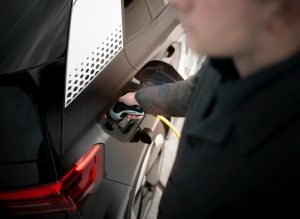As the world embraces sustainable transportation, hydrogen cars are gaining recognition as a promising alternative to internal combustion engines (ICEs) and battery electric vehicles (BEVs). Powered by fuel cell technology, hydrogen cars offer unique advantages that address many challenges faced by other green technologies. Here’s a closer look at why hydrogen cars could revolutionize the automotive industry.
How Hydrogen Cars Work
Hydrogen cars use fuel cells to generate electricity by combining hydrogen and oxygen in a chemical reaction, with water vapor as the only byproduct. This makes them a zero-emission solution. Unlike BEVs, which rely on large, resource-intensive batteries, hydrogen cars produce energy on demand. This reduces dependency on materials like lithium and cobalt, which are tied to environmental and supply chain challenges.
Quick Refueling and Long Range
One of the most significant advantages of hydrogen cars is their refueling time, which is comparable to traditional gasoline vehicles. In just three to five minutes, a hydrogen car can refuel, addressing one of the major limitations of BEVs, which require hours for a full recharge.
Additionally, hydrogen cars offer ranges similar to or greater than ICE vehicles, making them ideal for long-distance travel and commercial fleets where downtime needs to be minimized. This combination of fast refueling and long range positions hydrogen cars as a practical solution for drivers concerned about range anxiety.
Hydrogen’s Versatility as an Energy Source
Hydrogen’s flexibility as a renewable energy carrier adds to its appeal. Using electrolysis powered by renewable energy, hydrogen can be produced sustainably. It can also be transported and stored efficiently, enabling its use in regions with limited access to renewable energy infrastructure.
This scalability extends hydrogen’s potential beyond passenger cars to include heavy-duty vehicles, ships, and airplanes, making it a critical component in decarbonizing the broader transportation sector.
Challenges Facing Hydrogen Cars
1. Infrastructure Limitations
The primary barrier to widespread adoption of hydrogen cars is the lack of refueling stations. While EV charging networks are rapidly expanding, hydrogen refueling infrastructure remains sparse, concentrated mainly in regions like California, Japan, and parts of Europe. Developing a comprehensive hydrogen network will require significant investment and collaboration among governments, automakers, and energy providers.
2. Hydrogen Production Methods
Currently, most hydrogen is produced through steam methane reforming, a process that emits carbon dioxide and undermines hydrogen’s environmental benefits. However, advancements in green hydrogen production—using renewable energy for electrolysis—are on the rise. As renewable energy becomes more affordable, cleaner hydrogen production methods are expected to scale up, making the technology more sustainable.
3. Cost of Hydrogen Cars
Hydrogen fuel cell vehicles (FCEVs) are currently more expensive than BEVs and ICE vehicles due to the high cost of fuel cell production and limited economies of scale. However, as technology advances and production increases, these costs are expected to decrease, making hydrogen cars more accessible.
Government and Industry Support
Several governments and automakers are investing heavily in hydrogen technology. Countries like Japan, South Korea, and Germany are leading the way, funding infrastructure projects and research initiatives to accelerate hydrogen adoption.
Automakers such as Toyota, Hyundai, and Honda are producing FCEVs like the Toyota Mirai and Hyundai Nexo, showcasing the potential of hydrogen technology. These efforts, combined with international collaboration, are creating a foundation for broader hydrogen adoption.
Commercial and Industrial Applications
Beyond personal vehicles, hydrogen technology has significant potential in commercial and industrial sectors. Hydrogen-powered buses, trucks, and trains are already in use in some regions, proving the versatility of this technology. These applications could drive demand for hydrogen, fostering infrastructure development and cost reductions that benefit all hydrogen-based solutions.
The Future of Hydrogen Cars
Hydrogen cars offer a compelling vision for the future of transportation. Their quick refueling times, long ranges, and zero emissions address many limitations of BEVs and traditional vehicles. Although challenges remain—particularly in infrastructure, production methods, and costs—ongoing innovation and investment are steadily overcoming these obstacles.
As the world strives for cleaner mobility solutions, hydrogen cars are poised to play a pivotal role in the transition to a sustainable transportation ecosystem. By complementing battery-powered vehicles, hydrogen cars can diversify the clean energy landscape and become a key player in achieving global sustainability goals.













